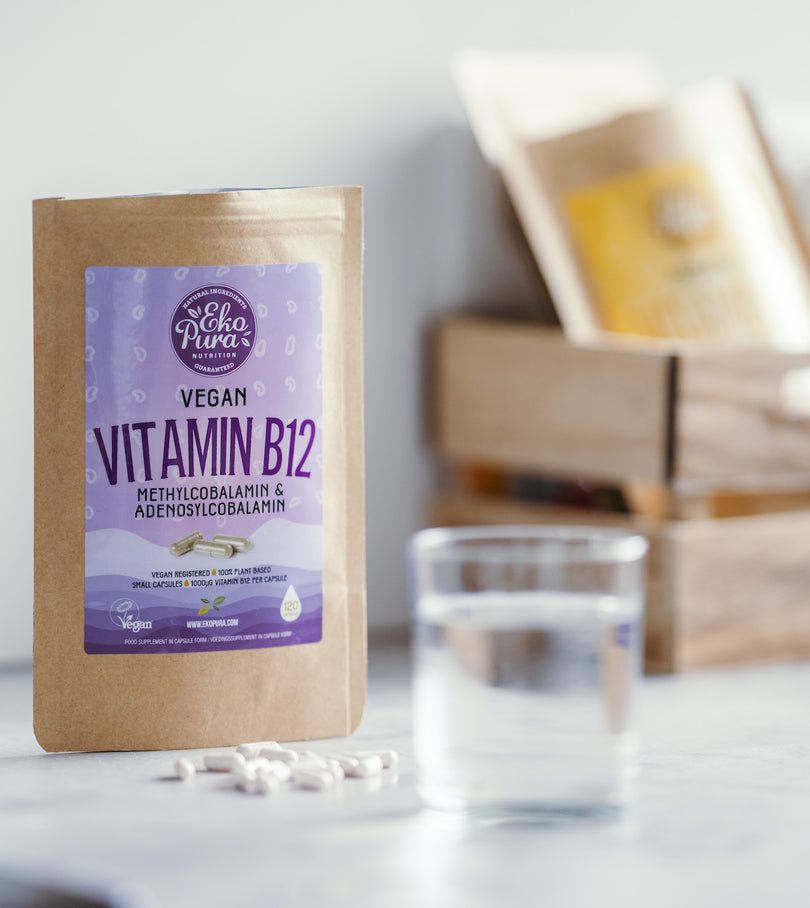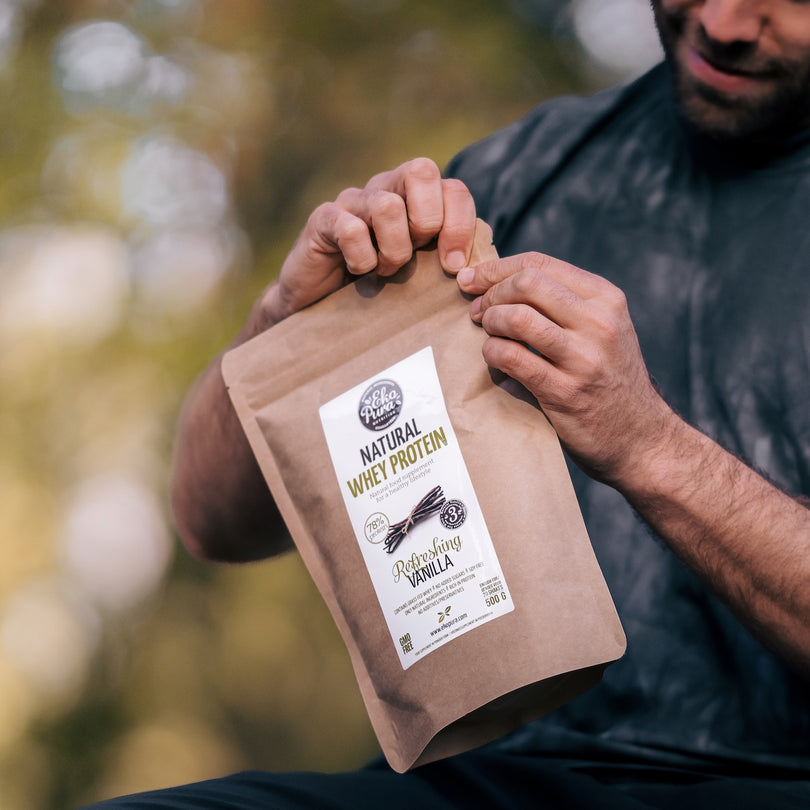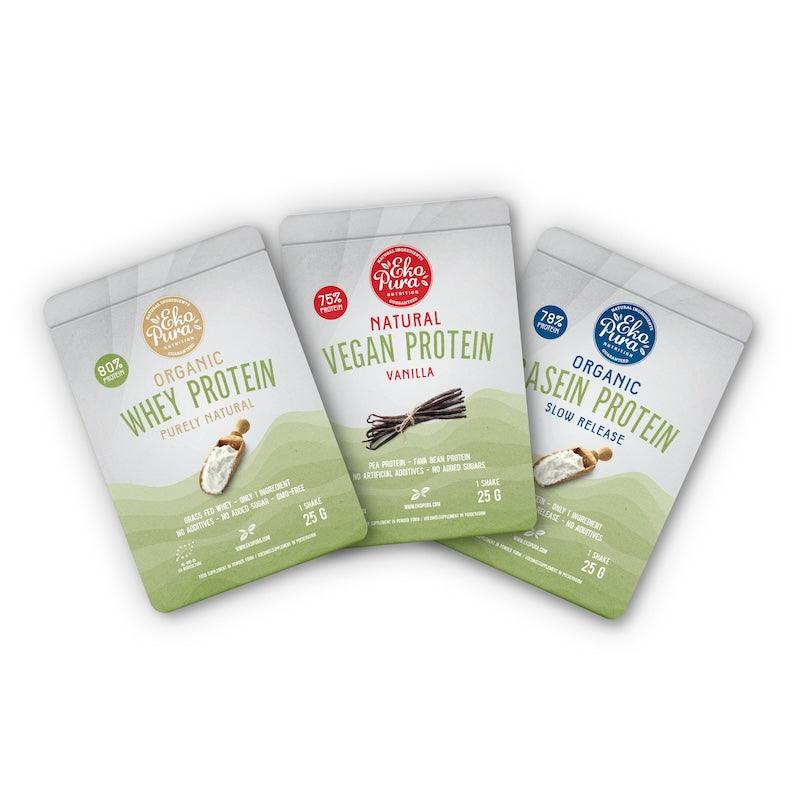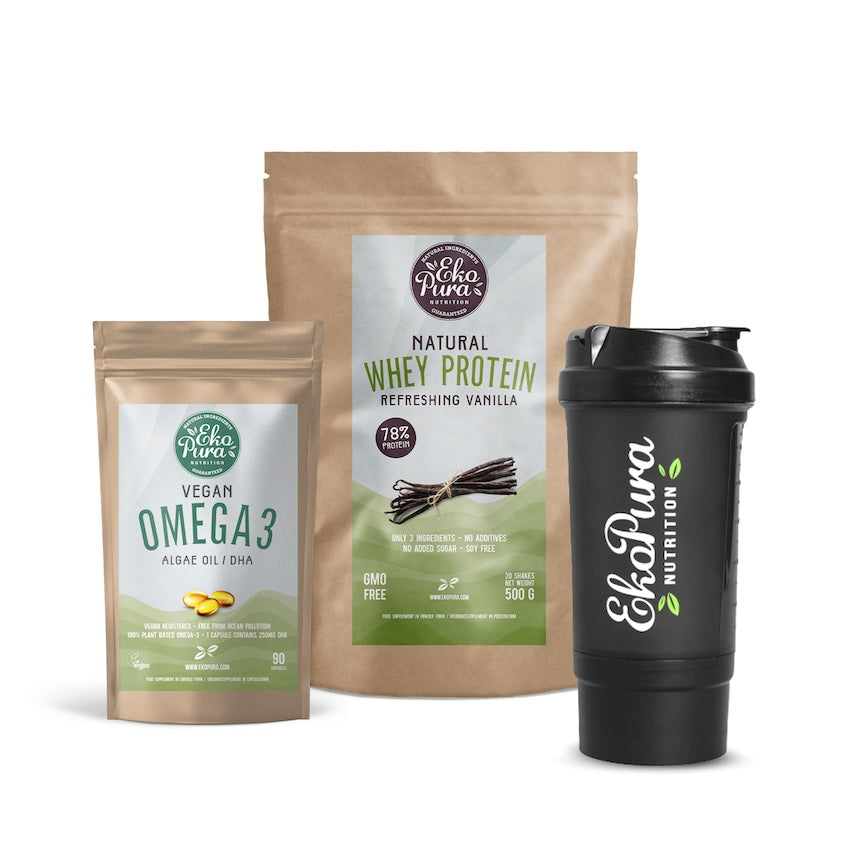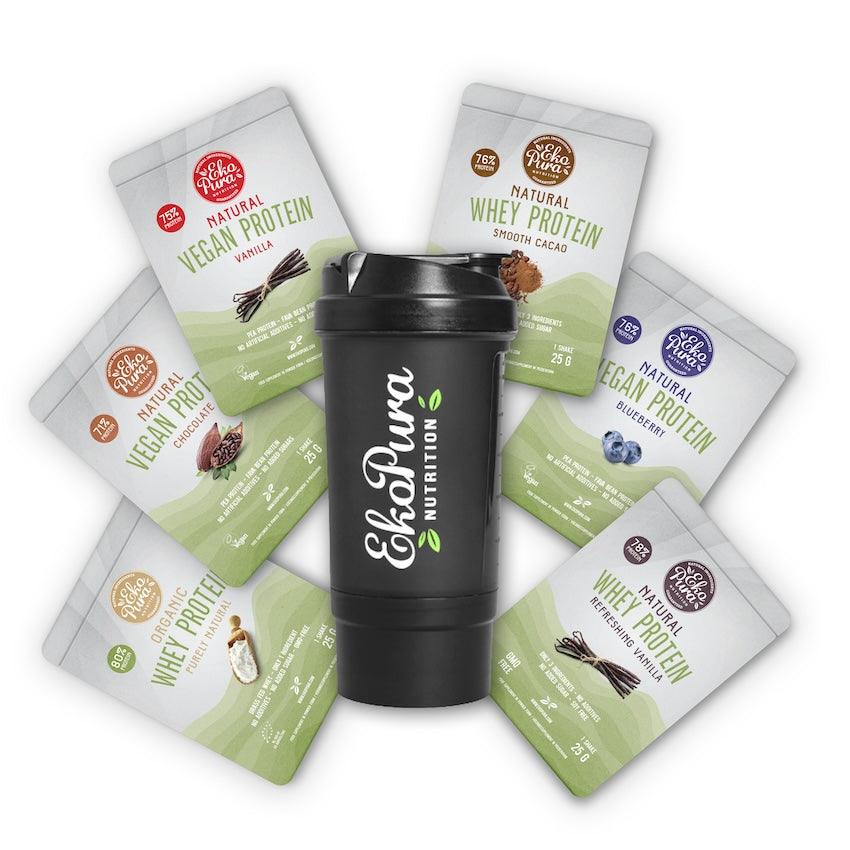
Whey
Whey protein or whey powder, is easily and quickly absorbed by the body. This makes it perfect for muscle recovery after exercise. Available in natural, vanilla and cocoa flavors, 100% pure, all-natural and deliciously creamy.
Made with Organic Whey Protein from grass-fed cows, with no unhealthy additives. For muscle recovery, muscle building and muscle maintenance.
Filters
Filters
Optimize your performance with whey protein: discover the benefits and proper use!
Want to take your performance to the next level? Then whey protein may be the key to success! Discover the many benefits of whey protein and how to use it properly.
Whey protein is a high-quality source of protein that helps your body recover and promotes muscle growth. It is a popular choice among athletes and fitness enthusiasts because of its rapid absorption and high biological value. Whether you do strength training, participate in endurance sports or just want to improve your overall fitness, whey protein can help you achieve better results.
Read below about the various benefits of whey protein, such as promoting muscle growth, optimizing the recovery process and supporting the immune system. You can also read tips on how to use whey protein correctly for maximum results and what the benefits of Ekopura's organic whey protein are.
What is Whey Protein?
Whey protein, also known as whey protein, is a type of protein derived from milk, in our case organic milk. It is produced during the process of cheese making, where the liquid part of milk is separated from the solid parts. This liquid part, called whey, is then filtered and dried to obtain whey protein.
Whey protein is known for its high biological value, which means it can be properly absorbed and used by the body. It contains all the essential amino acids needed for muscle building and recovery. In addition, whey protein is also rich in branched chain amino acids (BCAAs), which play an important role in stimulating muscle protein synthesis.
Several forms of whey protein are available, including whey concentrate, whey isolate and whey hydrolysate. Each type has its own properties and benefits. In the following sections, we will discuss in more detail the various benefits and proper use of whey protein.
The benefits of whey protein powder
Whey protein offers numerous benefits for athletes, fitness enthusiasts and people looking to get extra protein in. Here are some key benefits:
- Muscle building: Consuming whey protein after a workout can help stimulate muscle growth and repair muscle damage. The high concentration of amino acids in whey protein ensures rapid absorption and delivery of building blocks for muscle repair and growth.
- Muscle recovery: Whey protein can help speed up the recovery process after an intense workout. It helps reduce muscle soreness and repair damaged muscle fibers, making you ready for your next training session faster.
- Strengthening the immune system: Whey protein contains high levels of immunoglobulins, which support the immune system and help protect the body from disease and infection. This is especially important for athletes, as intense training can weaken the immune system.
- Weight control: Whey protein can also help control body weight. It provides a sense of satiety, making you less likely to feel hungry and less likely to overeat. In addition, it stimulates fat burning and preserves muscle mass while losing weight.
One of the most remarkable properties of whey protein is its rapid absorption rate in the body. This makes whey protein an ideal choice to consume immediately after exercise, when muscles need nutrients for recovery and growth. Taking whey protein powder immediately after exercise allows athletes to quickly deliver essential amino acids to their muscles, speeding up the recovery process and stimulating muscle growth.
The effect of whey protein on muscle growth and recovery
Consuming whey protein can provide significant benefits for muscle growth and recovery. Whey protein contains high levels of leucine, an essential amino acid that plays an important role in stimulating muscle protein synthesis.
During an intense workout, your muscles get damaged and need building blocks to recover and become stronger. Whey protein provides your muscles with the necessary amino acids to promote this recovery process. It helps build new muscle tissue and reduce muscle soreness after a workout.
In addition, whey protein can also help maintain muscle mass while losing weight. During a calorie-restricted diet, there is a risk of muscle loss. Consuming enough protein, including whey protein, can help prevent this by stimulating muscle protein synthesis and reducing muscle breakdown.
The different types of whey protein
There are different types of whey protein available, each with its own characteristics and benefits. The three most common forms of whey protein are discussed below:
- Whey concentrate: Whey concentrate is the most common type of whey protein and generally contains a protein content of 70-80%. It also contains a small amount of lactose and fat. Whey concentrate is an affordable option and still offers many benefits for muscle growth and recovery.
- Whey isolate: Whey isolate is a purified form of whey protein and generally contains a protein content of 90% or higher. It has a very low lactose and fat content, making it a good choice for people who are lactose intolerant or want to limit their fat intake. Whey isolate is absorbed faster than whey concentrate.
- Whey hydrolysate: Whey hydrolysate is a pre-digested form of whey protein that is more easily and quickly absorbed by the body. It is purified and hydrolyzed, allowing it to digest quickly and send the amino acids directly to the muscles. Whey hydrolysate can help speed up the recovery process.
Ekopura's organic whey protein
Ekopura's organic whey protein is an organic protein powder produced and sold sustainably. The whey comes from organic farms in southern Germany and the Alpine region. Here the cows graze on rich Alpine pastures, an environment with clean air and a healthy atmosphere. The cows have the freedom to graze outside as long as the temperature allows.
The whey protein comes from grass-fed Alpine cows. Throughout the year, the cows mainly eat grass from the pastures. In the winter, when temperatures drop, the cows are brought inside. There, they are fed silage and hay harvested during the summer months from the same healthy grasslands where the cows graze. To ensure that the cows get enough nutrients during the winter period, they are sometimes supplemented with organic grains. Importantly, we use absolutely no genetically modified products (GMOs) in our cows' diet.
Using and buying Whey protein
The organic protein powder is versatile and can easily be added to your daily routine. Simply mix it with water or milk for a quick and nutritious snack. Want to add organic whey to your breakfast? Then use it through your smoothie or oatmeal. On our blog you will find numerous recipes that make using whey protein even easier and more delicious!
Looking for an organic whey protein powder that can help you recover and build your muscles? Then take a look at our range of high-quality protein products. Our organic whey protein features the best quality and taste. You can easily add it to your daily diet!
Frequently asked questions about whey protein
- How much whey protein should I take per day? The recommended dosage of whey protein varies depending on your body weight, training goals and individual needs. In general, it is recommended to take 20-30 grams of whey protein per serving. Easily calculate your own daily protein requirement with the help of the chart in this article.
- Can I use whey protein if I am lactose intolerant? Whey is made from milk, so it will always contain a certain amount of lactose. Although whey isolate contains very little lactose, there is no whey variety that is 100% lactose-free. If you want to be sure you really don't ingest lactose, go for a plant-based protein powder and take a look at our vegan protein powders.
- Can I use whey protein if I follow a vegetarian or vegan diet? Whey protein is derived from milk and is therefore not suitable for people following a vegan diet. However, there are plant-based protein powders available that are suitable for vegetarians and vegans, such as pea protein, rice protein and hemp protein. We use a blend of pea protein and fava protein.
- Can I take whey protein if I'm not doing an intense workout? Yes, whey protein can also be useful for people who do not do intense training. It can help maintain muscle mass, boost metabolism and promote a healthy weight.
Want to know even more about Whey Protein? Then also read this article: Why whey protein and what does it do?





